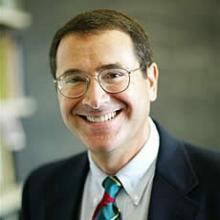The Novelist as Extremist: Francis Stuart’s Black List Section H
In 1961 a great Irish writer called Francis Stuart wrote a novel the like of which had not been seen before. It was entitled Black List Section H and it didn’t find a publisher for eight years because Stuart had been banished from the literary world. In 1939, shortly before the outbreak of war, he had accepted an invitation to do book readings in Germany. He was a prolific writer of fiction, with eleven novels already behind him in the previous eight years, and had come to the attention of academics in the Third Reich. You might think that accepting such an invitation was bad enough but, to make matters much worse, during the war years in Germany he agreed to do radio broadcasts to Ireland.
Why did he do these things? Was he a collaborator? Was he foolish or stupid or both? Did he not know what was already happening to the Jews under the Nazis? Could he not even see that he had a responsibility to his fellow-writers in Germany who were being hounded and having their books burned because of their dissident views? After his arrest, imprisonment and release by the Allies in 1945 Stuart wrote:
“I came under suspicion not because I was a Nazi, which God knows I never was, but because I was not on any side. Because I did not believe in one propaganda or the other. Because I had more or less blind instinct against three-quarters of the whole organized civilization, the machine monster with all its camouflage of false idealism under which I had lived. And if I spoke on German radio to my own people it was primarily to say this. Perhaps I was wrong to speak, perhaps it was identifying myself too much with the horrors of Nazism and it was later a revelation of this that made me refuse to speak further, but had I not done so, had I not suffered, I would not have come to my present knowledge. I had to experience the whole horror first hand, a horror that was not merely the Nazi horror, but this horror of a world which the Nazi was but a part. No, I am glad that I suffered ... and I know what I suffered for, because in my blind way I was not on the side of the victors, because I know there was no real victory.”
He knew what he suffered for. And what was that? It was to find himself in an exposed place, away from a sheltered existence where he might enjoy comforting intimations from others of shared beliefs and received wisdoms. This was not for him. He saw all cherished beliefs as suspect. The way he saw it a refusal to attitudinize was the only valid mode.
When you think about it these are the tenets which any serious writer should hold. But Stuart could see no contemporary writer of the kind of Baudelaire, Poe, Keats, Emily Brontë, Proust , or Kafka who because of one or more of alcoholism, sexual excess, tuberculosis, venereal disease, rejected love, condemnation, and banishment had been driven beyond the position where the old assumptions were still acceptable. Not for Stuart the modern novel replete with accomplished social commentaries revealing insights that the experienced reader could pride himself on recognizing. The celebrated writers that he saw around him were, with the possible exception of James Joyce (and even here Stuart had his reservations – he could not help thinking of Joyce as an innovative but fussy filing clerk!), walking in furrows already ploughed.
What then is Black List Section H about? On a chronological level it is an account of Stuart’s life from age seventeen to forty-three, a period which includes his disastrous marriage to Iseult Gonne, daughter of Maud Gonne, his conversations with William Butler Yeats who admired him greatly, his part in the Irish civil war, his extra-marital affairs, the writing of his earlier novels to generally high literary acclaim and his ill-advised stay in Germany during the war years. It ends with a brief account of his eight months in prison at the hands of the Allies.
On another level however it is to do with Stuart obsessively searching for a position from which he could set about defending the powerless, the disenfranchised - and even the indefensible. One of his novels tells of two girls who had been caught consorting with British forces during the Irish War of Independence and as a punishment were tied to church railings early on a Sunday morning where they would be seen and ridiculed by the faithful going to celebrate Mass. In this book Stuart’s sympathies were with the girls. His attitude was neither charitable nor pro-British but instinctive.
This compulsive search for artistic isolation sets him apart from the great writers listed above in that they tended to produce their best work only after finding themselves in a lonely and desperate place or state of mind. Stuart on the other hand spent most of his adult life actively seeking that very place where he would be, in his own words, “distinguished not by acclaim but by the brand of dishonour.” In furtherance of his search he studied the lives of Christ and many of the Christian mystics and fitfully tried to follow their practices. He concluded that “the final finding [on my writing will be] pronounced by the terrifyingly faithful and true Arbiter.”
So there we have it. The capital A that he gave to the word arbiter tells us what we need to know. Stuart was an extremist whose religion was writing and whose god was Truth.
In the picture the author Colm Herron as portrayed by his daughter Nuala Herron. For her web site please click here.

















